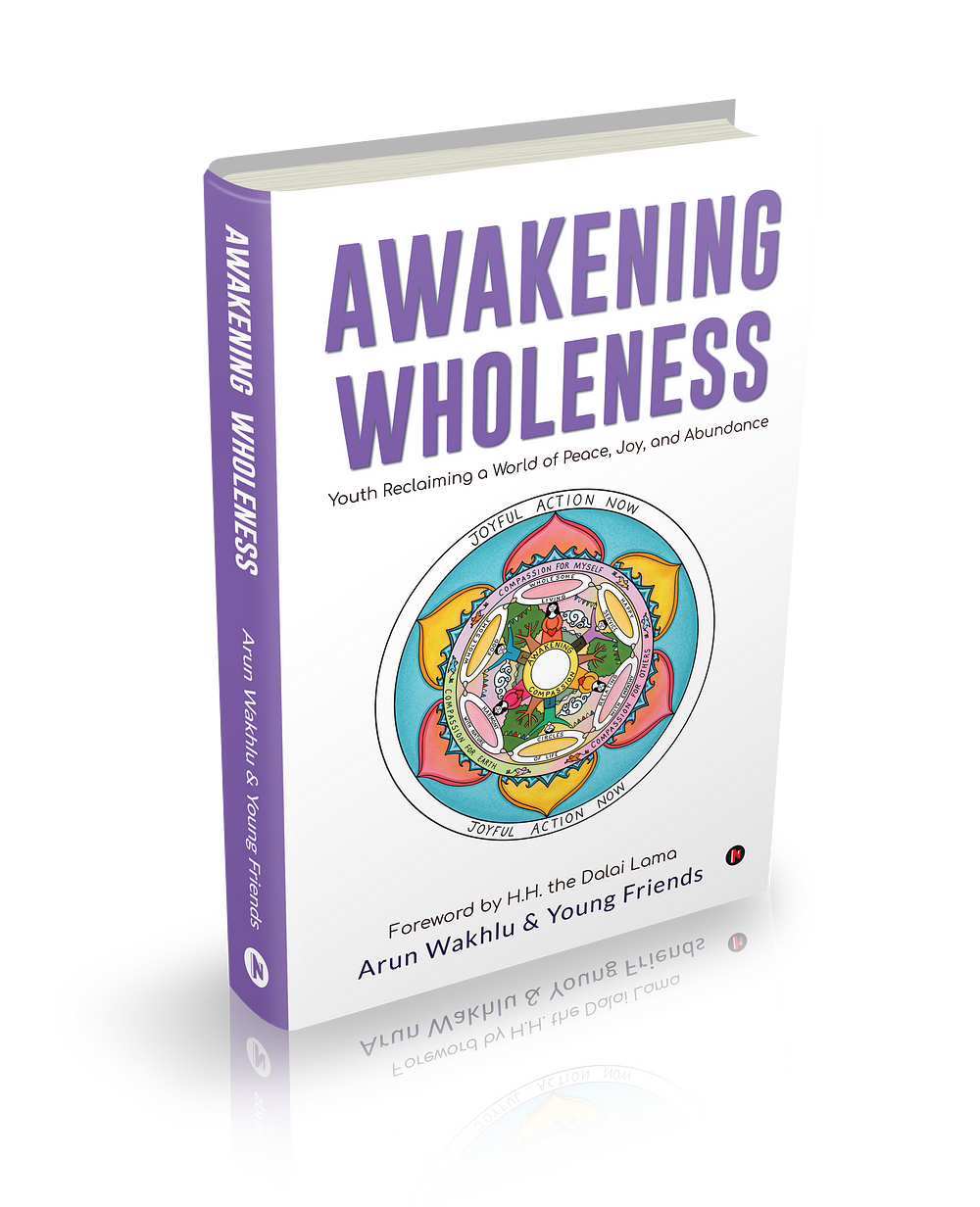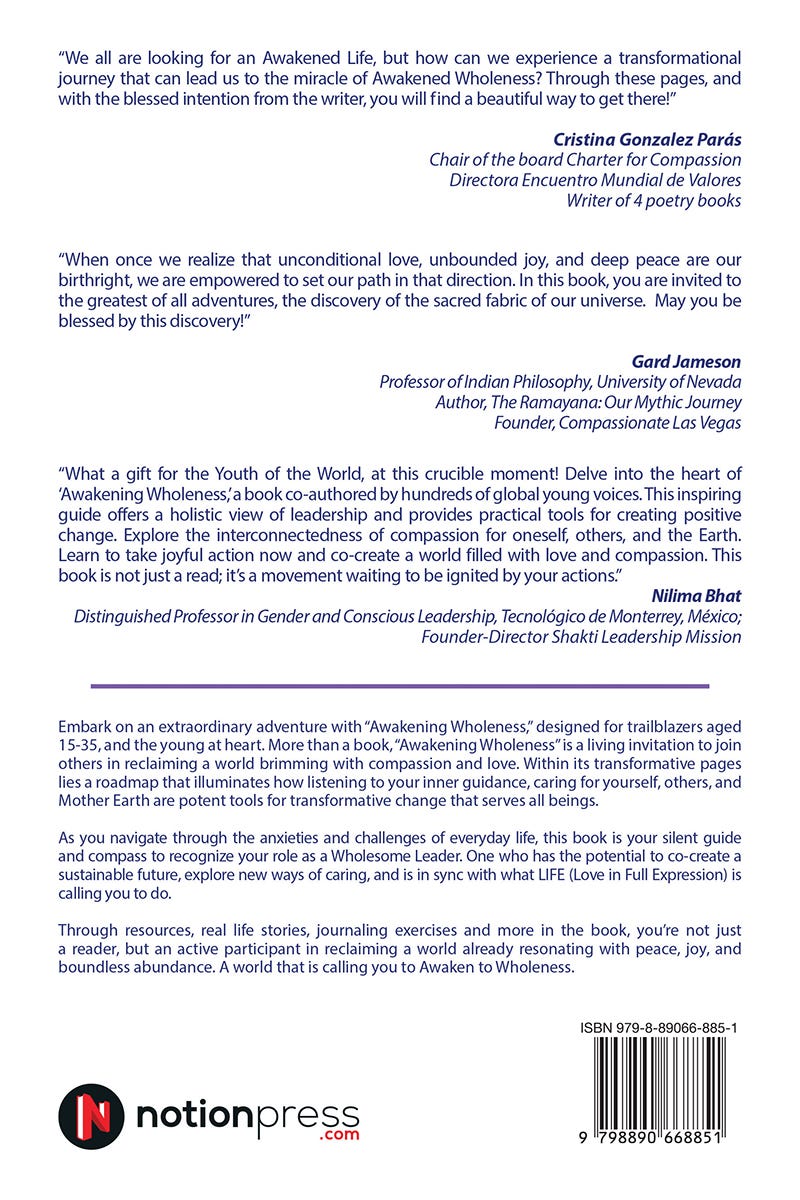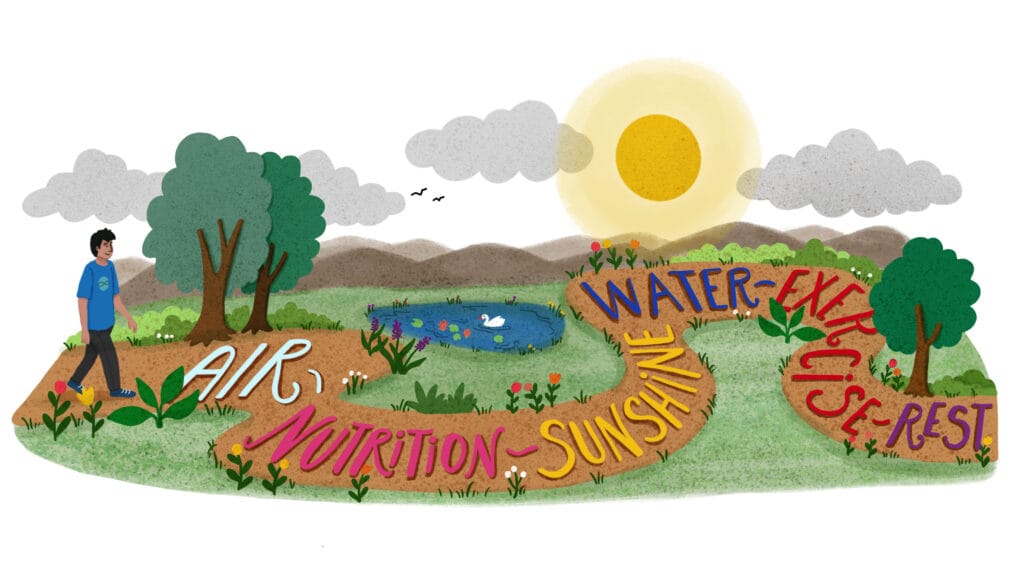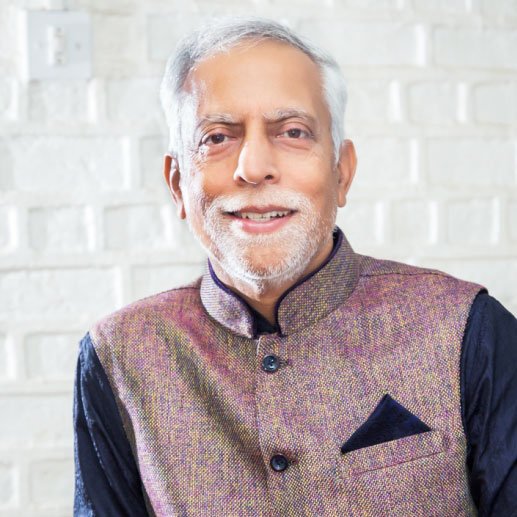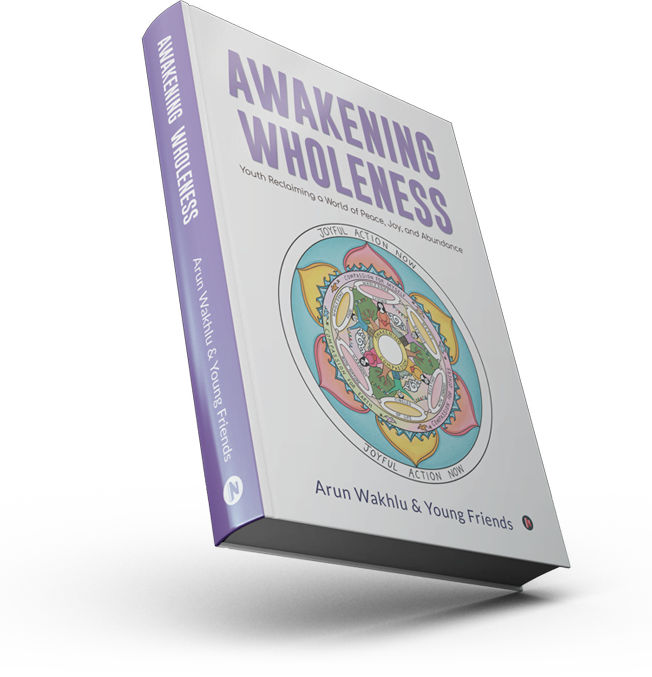Quick Reads From Awakening Wholeness: a book that helps young leaders develop compassion for Myself, Others and The Earth.
Our Mission is supporting Youth Globally in learning Compassion for Oneself, Others & our Environment.
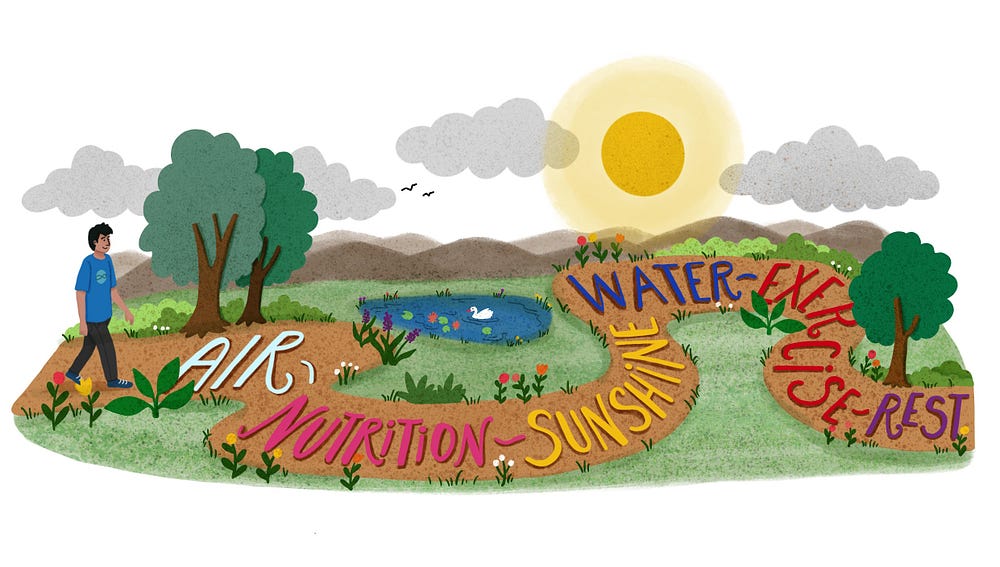
Dr. Pravin Chordia trained as a doctor. He did his MBBS and then his Masters in Surgery. He went on to become a brilliant surgeon, following the conventional trajectory of a good career in medicine. However, he slowly began to understand that there’s a deeper part to health. That it has more to do with the air, the sunlight, nutrition, and other things. And then he formed a movement called Medicine Free Life (MFL). It was a joy to spend time with him and his team at the MFL campus called the “Serene Eco Village”, located close to Velhe, overlooking the backwaters of the Gunjawani Dam.
It’s a beautiful five- and-a-half-hour drive from Pune, India. What you read in this chapter is largely inspired by Dr. Pravin Chordia’s work. He offers some basic tips for good health in the form of an acronym:
ANSWER — Air, Nutrition, Sunlight, Water, Exercise, and Rest. Let’s look at each one of these in more detail.
Rest
Sleep deprivation can have a profound impact on your mental health. In addition to having a negative influence on your psychological state, the National Sleep Foundation reports that lack of sleep has been linked to higher rates of depression and anxiety.
According to their website, “Sleep-deprived individuals are 10 times more likely to have clinical depression and 17 times more likely to have clinical anxiety. The more a person experiences insomnia and the more frequently they wake up at night as a result of it, the higher the chances of developing depression.” So, make sleep a priority, not a luxury.
Get a minimum of 7 to 8.5 hours of sleep per night. Under strict experimental conditions, short-term restriction of sleep has resulted in a variety of adverse physiologic effects, including activation of the sympathetic nervous system (our ‘flight or fight’ or ‘stress’ response), high blood pressure, impairment of blood sugar control, increased inflammation, depressed immunity, and poor cognitive performance.
Imagine what it can do over a lifetime. Just one night of poor sleep has been shown to have a significant impact on mood, anxiety levels, and emotional reactivity.
Your body actually remembers all the sleep it should have gotten but didn’t — something called sleep debt — and the more in sleep debt you are, the less capable you are of recognising it.
When fatigue, irritability, and brain fog have set in, we can hardly recall what it is like to feel truly rested. We have used sleep-inducing music to get a good night’s rest. (Check out Spotify for some great relaxing music.) It also helps to stay off your computer and phone for a few hours before going to bed.
My own experience is that eating a light supper instead of a heavy meal at night works well for an energising night of rest.
Making lifestyle changes that support a healthy sleep routine, such as increasing physical activity and engaging in relaxation techniques like meditation, can be beneficial to your psychological state.
All that we have shared here are just some pointers. Select a few things you would like to work on to improve your health and resilience.
The note you just read is from Awakening Wholeness Book . Read more at
www.awakening-wholeness.com
